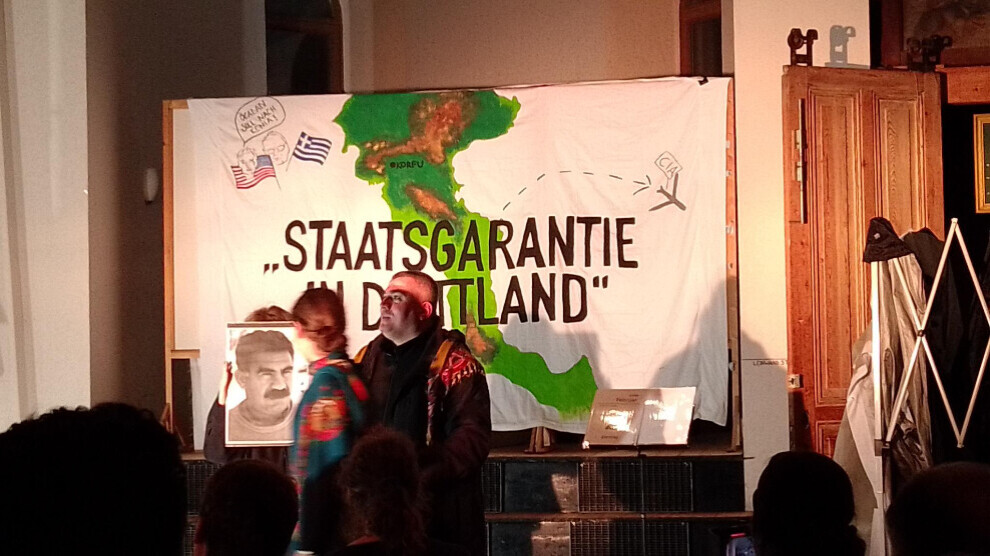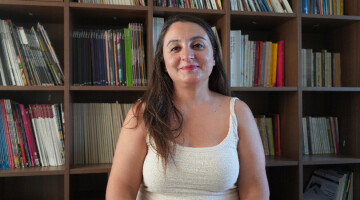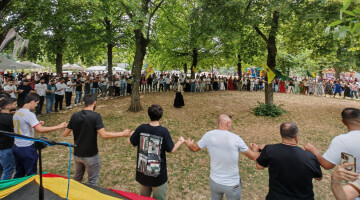On the anniversary of the start of the international conspiracy against Abdullah Öcalan (9 October 1998), an impressive play was performed in Hanover. Under the title "7 Acts Against Humanity - The Odyssey of Abdullah Öcalan", internationalist activists from Young Women's Communes, Youth Communes, Together Fighting, Women Defend Rojava as well as the Ronahî Women's Council and Nav-Dem Hanover presented the stages that led the Kurdish people's leader from his expulsion from Syria to his imprisonment on the Turkish prison island of Imrali.
Since the originally planned play could not be performed outdoors as planned due to bad weather conditions, it was moved indoors - a last-minute change that did not, however, detract from the success of the premiere.
Around 50 spectators attended the performance, which not only addressed Öcalan's personal tragedy, but also the political and international entanglements that led to his illegal abduction and extradition. The focus was on the chronology of events: starting with Öcalan's departure from Damascus on 9 October 1998, through his unsuccessful attempts to seek asylum in Russia and Italy, to his illegal arrest in Kenya on 15 February 1999. The countries of Europe and the U.S. played a central role in this - an act of inhumanity that continues to shape the fate of the Kurdish people to this day.
Democratic Theater
The interactive theater performance was written by all the actors together. The activists had originally planned to involve friends and activist friends from the area in this piece in order to achieve a collective in-depth look at the events of 26 years ago. "Initially," said one of the activists, "there were twice as many of us, but at the beginning of this process we underestimated how time-consuming it would be to write dialogues and design stage sets based on our own research."
The activists gave responsibility for the seven stops of the odyssey to seven small groups. After writing the individual scenes, a common thread was created based on the narrator's perspective of Abdullah Öcalan, which, together with an anonymous narrator, leads the audience through the story.















